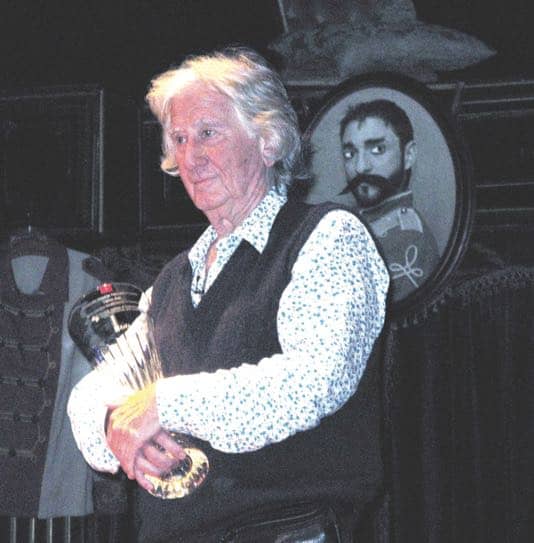
My first sight of an openly gay man was on television. In my early teens back in the late Nineties, almost every Saturday evening, my family and I would watch A praça é nossa, one of the most famous comedy shows in Brazil. Vera Verão, played by Jorge Lafond (1952-2003), a black gay man, was one of our favorite characters. Her sketches varied considerably. Sometimes, her race was the main reason for mockery. In other sketches, what led viewers to chuckle was Vera Verão’s fights with the women whose men she wanted to have. Yet despite their differences, a common event present in all sketches that Vera Verão played is that someone with disgust calls Lafond ‘bicha’ (‘faggot’). This was the moment my parents, my sisters, and I laughed the most: the moment when Lafond was humiliated for being gay. It is not surprising, then, that the Grupo de Gays Negros da Bahia (Group of Black Gay Men from Bahia) protested when the government announced that Lafond was chosen to advertise a public campaign against STDs among homosexuals. According to them, Lafond should not have been chosen because his work as a performer disseminated racism and homophobia.
What does Vera Verão have to do with ‘cultural colonialism and aesthetic injustice’? To answer this question, it is necessary to first explain what each term means.
Cultural Colonialism & Aesthetic Injustice
This story is from the April/May 2022 edition of Philosophy Now.
Start your 7-day Magzter GOLD free trial to access thousands of curated premium stories, and 9,000+ magazines and newspapers.
Already a subscriber ? Sign In
This story is from the April/May 2022 edition of Philosophy Now.
Start your 7-day Magzter GOLD free trial to access thousands of curated premium stories, and 9,000+ magazines and newspapers.
Already a subscriber? Sign In

Metaphors & Creativity
Ignacio Gonzalez-Martinez has a flash of inspiration about the role metaphors play in creative thought.

Medieval Islam & the Nature of God
Musa Mumtaz meditates on two maverick medieval Muslim metaphysicians.

Robert Stern
talks with AmirAli Maleki about philosophy in general, and Kant and Hegel in particular.

Volney (1757-1820)
John P. Irish travels the path of a revolutionary mind.

IT'S A WONDERFUL LIFE
Becky Lee Meadows considers questions of guilt, innocence, and despair in this classic Christmas movie.

"I refute it thus"
Raymond Tallis kicks immaterialism into touch.

Cave Girl Principles
Larry Chan takes us back to the dawn of thought.

A God of Limited Power
Philip Goff grasps hold of the problem of evil and comes up with a novel solution.

A Critique of Pure Atheism
Andrew Likoudis questions the basis of some popular atheist arguments.

Exploring Atheism
Amrit Pathak gives us a run-down of the foundations of modern atheism.